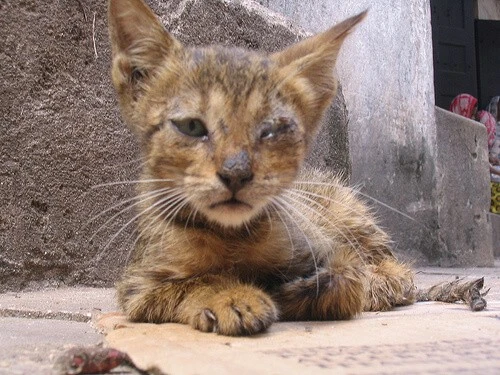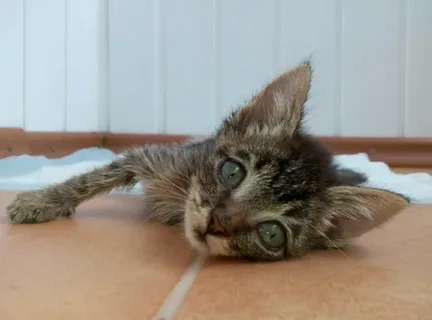When it comes to our furry friends, their health is always a first priority. One question that often pops up among cat owners, Is, Can cats get parvo? Parvo or parvovirus may be a well-known and dangerous disease in dogs but not a lot of people know its implications on cats. This article will do the explaining, debunk common myths, and give you the facts about parvo in cats.
What Is Parvo?
Parvo, short for parvovirus, is a highly contagious virus affecting primarily dogs. It attacks the Gi system, causing severe vomiting, diarrhea, dehydration and in the more extreme cases could be fatal especially for puppies. But what of cats? Can they get parvo too?The answer is yes, but it is not this particular virus. Cats can get a more or less similar virus termed feline panleukopenia virus(FPV), or feline parvovirus.
The virus is closely related to the one causing the ailment in dogs; however, it is specific to cats. FPV is just as dangerous to cats as parvo is to dogs so what it does and how to keep your feline friend protected is critical to understand.
Myth 1: Cats Can’t Get Parvo
One of the biggest myths is that cats are immune to parvo. While it’s true that cats don’t get the same strain of parvovirus that dogs do, they can still get feline parvovirus. FPV is just as serious and can spread quickly, especially in environments with multiple cats, like shelters or catteries.
Myth 2: Only Outdoor Cats Are at Risk
Some people are under the impression that only outdoor cats can get parvo; however, this idea is a myth. While outdoor cats are more likely to come into contact with the virus, indoor cats are not completely safe. The virus can come into the home on shoes, clothing, or by other objects which have been exposed to contaminated areas. Iam concerned, therefore, that indoor cats also require protection.
Myth 3: Parvo in Cats Is Rare
Another much-misunderstood topic is the thought of parvo as rare in cats. While certainly less talked about than parvo in dogs, it, too, is among the more dreaded infectious diseases and is particularly acute in kittens, geriatrics, and in any other sort of immunocompromised feline. Thanks to vaccination, cases have been on the decline; however, outbreaks do occur, especially in unvaccinated populations.
How Do Cats Get Parvo?

Feline parvovirus can be highly contagious by the following ways:
Direct Contact,
The cat can catch the virus by contact with saliva, feces, or urine of an infected cat;
Contaminated Object
The virus can survive in the surfaces like food bowls, litter boxes, bedding, and even in human hands for long;
Environment
The virus can stay alive for a while in an environment that makes it easier for cats to pick it up by having contact with contaminated soil or grass.
Symptoms of Parvo in Cats

The feline parvovirus will show symptoms such as: severe vomiting, diarrhea (oftentimes bloody), loss of appetite, lethargy or weakness, fever and hypothemia, dehydration;
The signs emerge rather suddenly and tend to deteriorate rather fast. Should you see any of these signs, be sure to contact your veterinarian at once; Such treatment will often provide a better chance of recovery for your cat.
How Is Parvo Diagnosed in Cats?
If your cat is suspected of having parvovirus by the vet, they might conduct a physical examination and a few tests.
Blood tests are to determine if white blood cell count in the blood is quite low, which is very common in cats infested with Feline Panleukopenia Virus (FPV). Fecal tests for the detection of the virus in your cat’s stool.
Can Parvo in Cats Be Treated?
While feline parvovirus has no specific cure yet, there is supportive care to allow your cat to recover. Fluid therapy, antibiotics to prevent or treat secondary infections, anti-nausea medication to stop vomiting, and nutritional support, so your cat receives the necessary nutrients for recovery are included. The good news is that with prompt and proper treatment, many cats can recover from parvo. But, as we all know, prevention is always better than cure.
How to Prevent Parvo in Cats
Vaccinating your cat against parvo is the best prevention method. The FPV vaccine is very effective and included among the other routine vaccines for your cat. For kittens, the first vaccine is typically given at 6-8 weeks of age, followed by booster shots per the vet’s recommendation.
Other methods of prevention are:
Keeping your cat indoors really limits its exposure to the virus.
Attention to hygiene:
washing hands after handling others or cleaning litter boxes.
Disinfecting surfaces:
Cleaning areas where your cat spends time with a bleach solution, especially if you suspect that contamination may have occurred.
Vaccinated Cats Don’t Need to Worry About Parvo

Although vaccination reduces the risk of parvo, it does not guarantee 100% protection. However, vaccinated cats are much less likely to get sick; and in case they do are usually less severe. Therefore, to be sure your cat is immune, never forget to give him/her booster shots.
Parvo Only Affects Kittens
While kittens are more likely to contract parvo due to their weak immune system, even an adult can fall ill. Those cats that are unvaccinated or have a health problem are at further risk. This is the reason why it is important to vaccinate cats of every age.
What to Do If You Suspect Parvo in Your Cat
Should you suspect your feline has parvo, act fast:
Isolate your cat:
Keep them away from other pets to prevent the virus from spreading.
Call your veterinarian:
Explain the symptoms and follow what they say.
Disinfect thoroughly:
Clean everywhere your cat has been with a disinfectant.
Final Thoughts
So can cats get parvo? They certainly can! Though, not the same one that attacks a dog, feline parvovirus is equally as deadly. Understand the risks, expose myths regarding the infection, and take proper precautions to ensure that your cat remains healthy and safe. Vaccination is the best defense, so make sure that your cat is always updated on its shots. Consult a vet for concerns regarding feline health. Into the bargain-or a little knowledge and care-have it done for the love of your cat.


